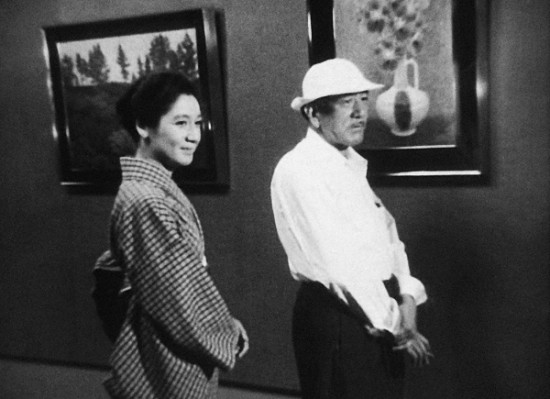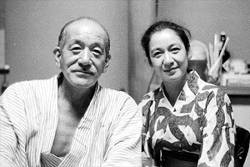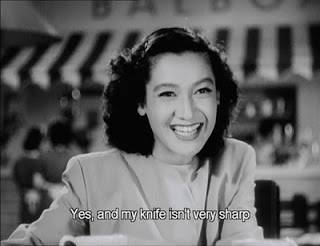Yasujiro Ozu and Setsuko Hara
“It’s very easy to show emotions in drama: the actors cry or laugh and this conveys sad or happy feelings to the audience. But this is mere explanation. Can we really portray a man’s personality and dignity by appealing to emotions? I want to make people feel what life is like without delineating dramatic ups and downs.” –Yasujirō Ozu
See teapots from his films
See Ozu paraphenelia from Brutus.. (his gourmet notebook is charming.. with maps to the restaurants)
Aki Kaurismaki and Hou Hsiao-Hsien on Ozu –
Hou on on Ozu (youtube)
Aki on Ozu (youtube)
Setsuko Hara – wiki (June 17, 1920 – September 5, 2015)
Ozu was born on Dec 12, 1903.. he passed away on his birthday Dec 12 1963.
We were deeply saddened to learn today of the passing of the great Setsuko Hara, star and soul of so many of the masterpiece creations of Yasujiro Ozu—among her many other memorable roles during the golden age of Japanese cinema. To pay tribute, we present again a beautiful piece on the legendary Ozu-Hara collaboration, by another great—Donald Richie
In retrospect, the reason for her decision seems evident. Our Noriko, for so many years troubled by the demands of society on one hand and the needs of the self on the other, finally decided. She would do what she wanted. And she did. All attempts to lure her out over the years have been rebuffed. When a documentary was made on Ozu, she refused to appear, just as, when he died, she did not attend his funeral. Setsuko Hara was her own person at last.
“Like Garbo, Hara came to represent an ideal of womanliness, nobility and generosity,” David Thomson wrote in The New Biographical Dictionary of Film. And like Garbo, she held her public at a distance.
“Every Japanese actor can play the role of a soldier, and every Japanese actress can play the role of a prostitute to some extent,” Ozu said of her. “However, it is rare to find an actress who can play the role of a daughter from a good family.”
Ms. Hara, who never married and leaves no immediate family members, made more than 100 films. She worked with the director Mikio Naruse on several movies and with Ozu on “Early Summer” (1951), “Tokyo Twilight” (1957) and “Late Autumn” (1960).
She teamed up with Mr. Kurosawa for a second time in 1951 in “The Idiot,” based on the Dostoyevsky novel. She was cast as the love interest of the title character and of a roguish aristocrat played by Toshiro Mifune. The film was not well received. Her last film before her retirement was Hiroshi Inagaki’s “Chushingura,” a retelling of the classic tale of the 47 ronin, a band of 18th-century samurai bent on avenging their slain leader. When she went into seclusion, Japanese filmgoers mourned. To them, Ms. Hara was more than an actress; she was, in some way, the soul of Japan itself. The novelist Shusaku Endo once wrote, of seeing a Hara film, “We would sigh or let out a great breath from the depths of our hearts, for what we felt was precisely this: Can it be possible that there is such a woman in this world?”


